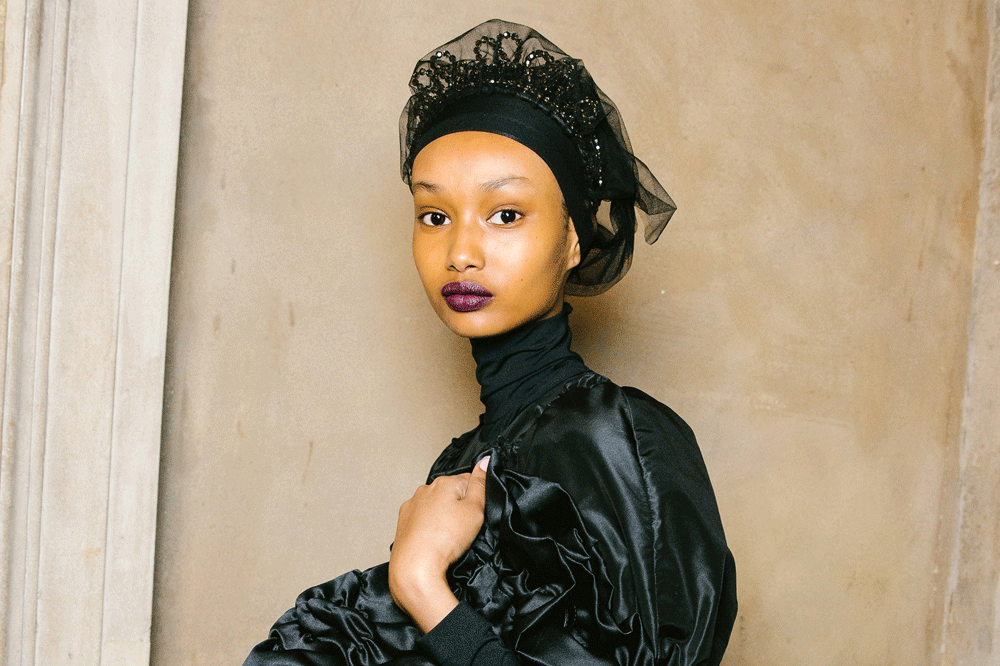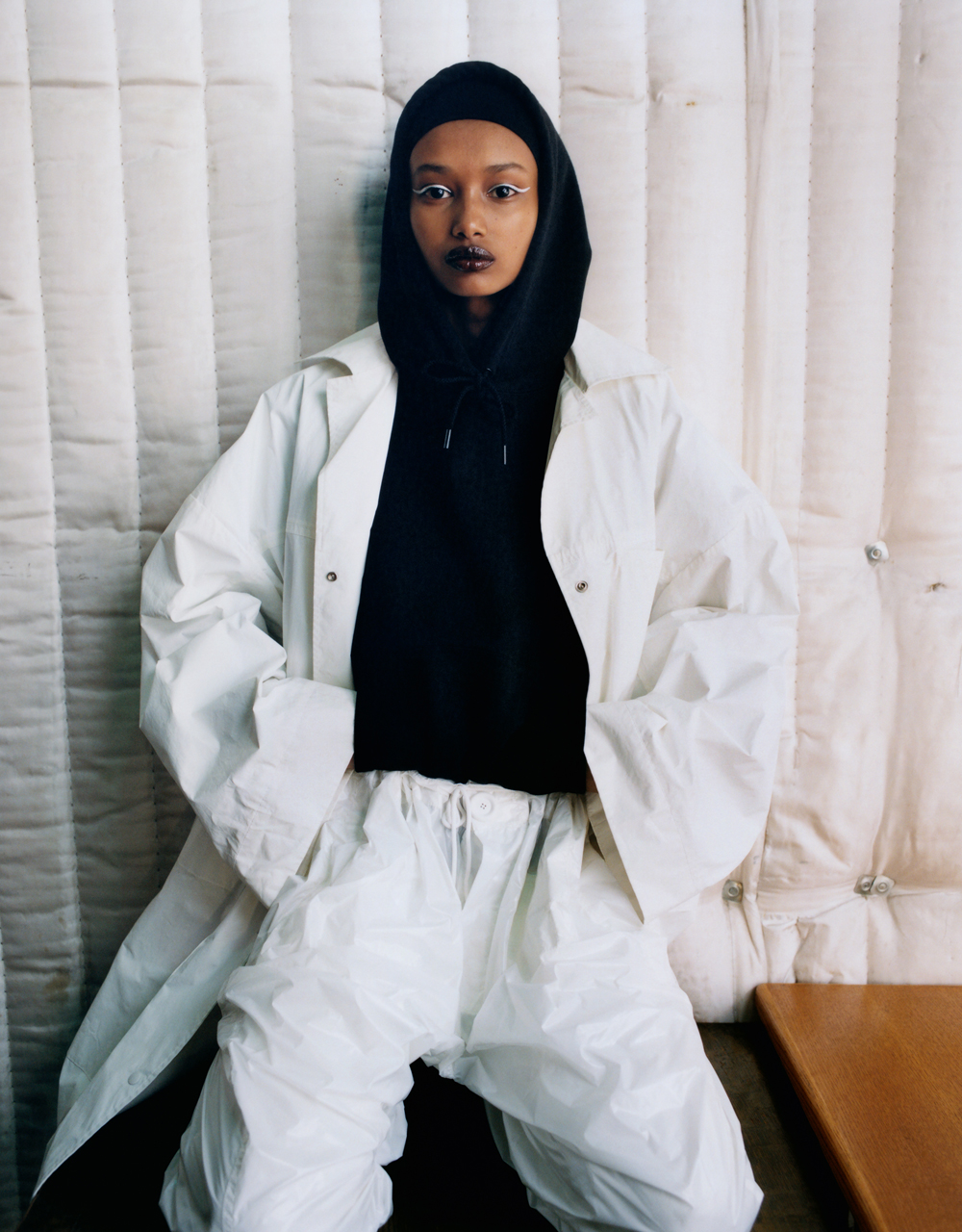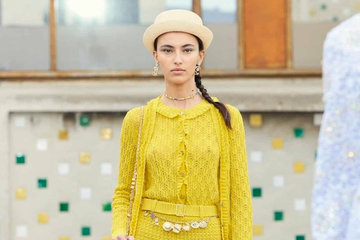
She became the first hijabi model to walk the runway for Lanvin, Fendi and Valentino couture, and even opened for Marc Jacobs in a bespoke feathered chapeau, Ugbad Abdi, was the most noticeable model at fashion month and all for good reason.
Compared to the likes of Alek Wek and Naomi Campbell, her life as a high fashion model is a far cry from where she came. Abdi was born in Somalia in a place called Kismayo amidst a civil war when her family fled to Dadaab, a refugee camp in Kenya where she lived for the first 9 years of her life. Not knowing any different, Ugbad Abdi led a happy childhood in the camp before her family moved to Iowa in America, joining one of the US’s oldest Muslim communities who also fled war in Syria and Lebanon generations before.

She dreamt of working in a zoo as a child, but it was not until she finished high school that she discovered that Muslim, hijab wearing models, like Halima Aden, were representing her community in the international fashion world. Ugbad was scouted on Instagram, just a couple of months after finishing high school. A year later the model lives in New York, and is living her dream.
In fashion, models are often asked to wear risqué or revealing designs, and Abdi, like Halima Aden, has managed to maintain her modest stance. The Somali model has been wearing her hijab since she was 14, and has proved that the fashion industry has accepted all that she holds dear – her faith, her voice and her identity.

Speaking to Vogue Arabia about her experience as a hijab wearing model, she says, “I haven’t encountered any discrimination or people making me feel like an outsider solely because of my hijab. I’ve had instances where people would say something ignorant and that’s when I feel I have a responsibility to educate them. I think things are slowly but surely being understood about the hijab and why women choose to wear it but I know that some people genuinely don’t want to be educated on it, which is why they believe in the back of their minds that we don’t have a choice to wear it. That’s something that has to change.”

It wasn’t very long ago that Ugbad Abdi, and other aspiring models like her, were feeling underrepresented in the global world of fashion, and yet now, she joins a young generation of modest models and shines bright in the mainstream fashion industry. “I’ll continue to model for however long it’s meant for me and my happiness,” she says.

















